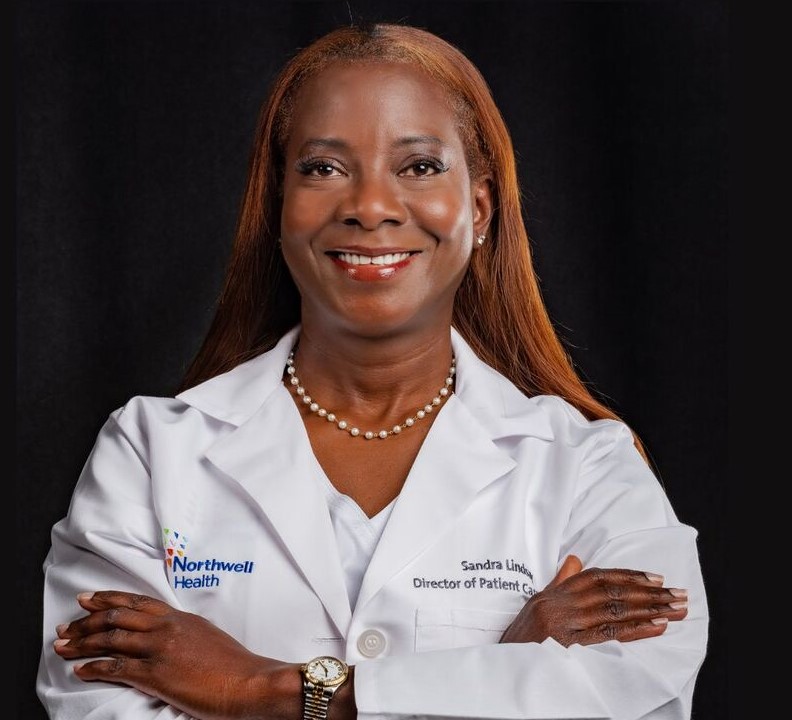
Category: College of Health Sciences

These Black doctors, nurses and scientists made a difference during the COVID-19 pandemic
February 16, 2023 Written by Amy Cherry
February is Black History Month – a time to celebrate Black Americans who have made important contributions in history and in modern times.
This year, the College of Health Sciences seeks to highlight Black healthcare professionals and scientists who made a difference during the COVID-19 pandemic, the deadliest pandemic in American history.

Kizzmekia Corbett
Without Kizzmekia Corbett, more lives would have undoubtedly been lost to the COVID-19 pandemic. Corbett, an assistant professor of immunology and infectious diseases at Harvard University, played a vital role in helping develop the Moderna vaccine. As postdoctoral scientist at the Vaccine Research Center at the U.S. National Institutes of Health, Corbett served as scientific lead of the COVID-19 team whose research efforts led to the development of the revolutionary mRNA vaccine. Corbett’s work also led to the development of the first monoclonal antibody treatment that was authorized by the Food and Drug Administration for emergency use for treatment of COVID-19.
Corbett was featured in Time magazine’s “100 Next” list under the Innovators category. Dr. Anthony Fauci wrote in the Time profile that Corbett’s work will have a “substantial impact on ending the worst respiratory-disease pandemic in more than 100 years.”

Jerome Adams
Jerome Adams served as the 20th Surgeon General and helped lead the nation through the COVID-19 pandemic, truly exemplifying his role as the “nation’s leading spokesperson on matters of public health.” Adams, who previously served as the health commissioner for the state of Indiana, became the fourth Black American to be confirmed as Surgeon General in 2017. At the time of his confirmation, Adams sought to focus on the opioid epidemic, and in 2018, he started a flu vaccination campaign after the 2017 flu season killed 80,000 Americans – the highest number in at least four decades.
But when the COVID-19 pandemic hit in 2020, his focus shifted. Adams became the “face” of the nation’s COVID-19 response for a time and was appointed to the President’s Coronavirus Task Force. In that role, he served as the Trump Administration’s strongest voice for minority communities during the pandemic.
While criticized at times for his language and changing viewpoints, Adams worked closely with the NAACP to push for increased vaccinations in minority communities and worked vigorously to combat false information about vaccines. He also spoke widely about racial disparities and the disproportionate number of African Americans affected by COVID-19. Adams was recognized by Modern Healthcare as a “preeminent minority leader on health issues.” He’s currently a Presidential Fellow and Executive Director of Purdue’s Health Equity Initiatives.

Sandra Lindsay
Sandra Lindsay was the first American to get vaccinated against COVID-19. Lindsay, a longtime nurse on the frontlines of the COVID-19 pandemic, rolled up her sleeves to receive the Pfizer BioNTech vaccine on December 14, 2020. The moment is lauded in history as a “game changer” in the nation’s deadliest pandemic. As a Black woman and Jamaican immigrant, Lindsay served as a role model for communities of color across the globe with her actions inspiring others to get vaccinated. Lindsay served as the Grand Marshal of the Healthcare Heroes Parade and the African American Day Parade in New York City in 2021.
She was awarded the Presidential Medal of Freedom for her bravery from President Joe Biden on July 7, 2022. Lindsay, who spent nearly three decades in nursing, is now the vice president of public health advocacy for Northwell Health, New York’s largest healthcare provider.

Ala Stanford
Before we even realized the full scale of the COVID-19 pandemic, Ala Stanford sprang into action. The first African American female pediatric surgeon trained entirely in the U.S. co-founded the nationally acclaimed Black Doctors COVID-19 Consortium in Philadelphia in April of 2020. The consortium was founded in response to low testing and vaccination rates among Philadelphia’s Black residents. The effort was born in a rental van, where Stanford, a Philadelphia native, and a handful of volunteers would roam the streets and administer free COVID-19 tests, in what became the city’s first mobile testing program, according to Philadelphia Magazine. Her work became a national model for engaging the Black community in COVID-19 vaccinations.
After graduating high school early, at age 17, Stanford enrolled at Penn State University (PSU), where she studied biology. In an alumni spotlight, Stanford told PSU’s Science Journal: “As a kid, every time I said I wanted to do something, my mom would say, ‘Yes you can.’ She used to tell me and my brother all the time, ‘There’s no such word as can’t.’ And I say that to my children now.”
Stanford is also the founder of Dr. Ala Stanford Center for Health Equity in North Philadelphia. The organization’s mission aims to reduce and eliminate health disparities, emphasizing the need for improved trust between patients and healthcare personnel to provide patient-centered care to vulnerable communities.
In April of 2022, Stanford was appointed by President Joe Biden to serve as regional director for the U.S. Department of Health and Human Services. Her work in Region 3, which includes Delaware, Pennsylvania, Maryland, West Virginia, Virginia, and the District of Columbia, focuses on rebuilding communities impacted by the coronavirus pandemic.
